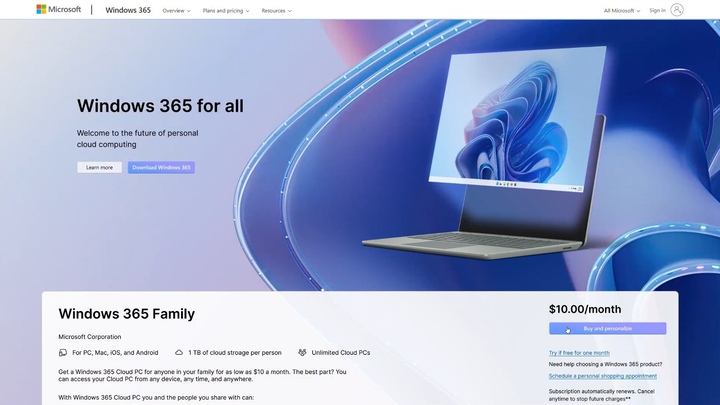Microsoft is making significant strides in moving Windows to the cloud, not only for commercial use but also for consumers.
Internal documents revealed in the ongoing FTC v. Microsoft hearing shed light on the company’s plans to leverage its Windows 365 service to stream a full version of the Windows operating system from the cloud to any device.

The presentation, dated June 2022, highlights Microsoft’s long-term goal of shifting Windows 11 towards cloud-based deployment, offering enhanced AI-powered services and seamless digital experiences across devices.
Windows 365, which currently caters exclusively to commercial customers, is being deeply integrated into Windows 11. In an upcoming update, Microsoft plans to introduce Windows 365 Boot, allowing Windows 11 devices to directly log into a Cloud PC instance during boot, bypassing the local version of Windows.
Additionally, Windows 365 Switch will be incorporated into Windows 11’s Task View, enabling users to seamlessly switch between local and cloud-based virtual desktops.
Also Read: Why are Facebook and Instagram ending news access in Canada?
The idea of transitioning Windows to the cloud for consumers is coupled with Microsoft’s interest in forging custom silicon partnerships. The company has already ventured into this realm with its ARM-powered Surface Pro X devices.
Reports suggest that Microsoft has explored designing its own ARM-based processors for servers and possibly even for Surface devices. Furthermore, rumors indicate that Microsoft may be developing its own AI chips.
The presentation emphasizes the importance of solidifying the commercial value of Windows and responding to the threat posed by Chromebooks. One avenue to achieve this is by increasing the usage of cloud PCs through Windows 365.
In line with its AI-focused approach, Microsoft recently announced Windows Copilot, an AI-powered assistant for Windows 11. Windows Copilot resides alongside the operating system and offers features such as content summarization, rewriting, and explanations. Currently undergoing internal testing, Windows Copilot is set to be released to testers in June before being made available to all Windows 11 users.
Windows Copilot is just one aspect of Microsoft’s broader AI initiatives for Windows. Collaborations with AMD and Intel aim to enable more Windows features on next-generation CPUs. Speculation surrounding Windows 12 has been fueled by hints from Intel and Microsoft themselves.
At CES earlier this year, Panos Panay, the Windows chief, expressed his belief that AI will revolutionize the way users interact with Windows. The internal presentation emphasizes Microsoft’s commitment to incorporating improved AI-powered services into Windows to fulfill its ambitious vision.
In conclusion, Microsoft’s internal presentation reveals its intentions to advance the cloud-based deployment of Windows, both for commercial and consumer use. With Windows 365 as a foundation, the company seeks to leverage the power of the cloud and AI to provide enhanced services and seamless experiences across devices.
By expanding its custom silicon partnerships and exploring AI-focused developments, Microsoft aims to strengthen the value of Windows and address competitive challenges while empowering users with innovative features and capabilities.

I am a law graduate from NLU Lucknow. I have a flair for creative writing and hence in my free time work as a freelance content writer.